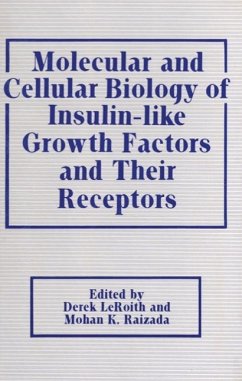An essential element in the development and functional integrity of all organisms is intercellular communication. This is achieved by the secretion of soluble messenger molecules which subsequently interact with receptor-effector pathways in the responsive cells. Hormones are traditionally defined as chemical messengers synthesized by endocrine glands. Unlike hormones produced by endocrine glands, growth factors are hormone-related substances produced by many tissues and play an important role in controlling growth and development. While the exact physiological roles of growth factors have yet to be elucidated, they play important roles in the regulation of cellular proliferation and/or differentiation during ontogenesis, growth and differentiation. During recent years there has been a substantial increase in research related to peptide growth factors, their receptors, and modes of action. With the discovery and characterization of numerous growth factors, it became clear that these growth factors had multiple features in common with classic hormones as well as with oncogenes. Furthermore, there are distinct families of growth factors based either on structural or functional similarities.
Dieser Download kann aus rechtlichen Gründen nur mit Rechnungsadresse in A, B, BG, CY, CZ, D, DK, EW, E, FIN, F, GR, HR, H, IRL, I, LT, L, LR, M, NL, PL, P, R, S, SLO, SK ausgeliefert werden.
Hinweis: Dieser Artikel kann nur an eine deutsche Lieferadresse ausgeliefert werden.









